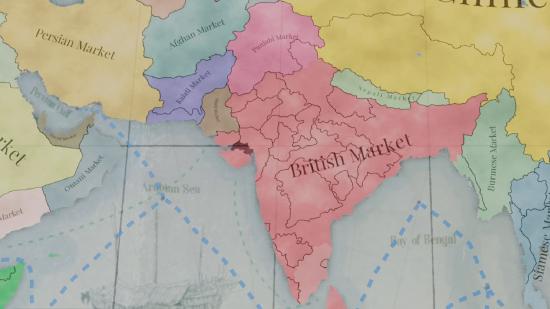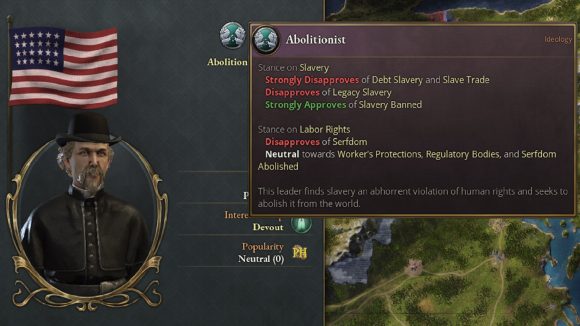Victoria 3 is the next grand strategy game coming from Paradox Interactive, and one that many have been hoping to see for so long it was a meme, for a while. I’m pretty excited too, but one thing we’ve all been waiting to see is how the game is going to handle the extremely sensitive subject of slavery.
This week’s dev diary, written by game director Martin ‘Whizzington’ Anward, explores exactly that topic, and it’s a bit of a big one. It begins by discussing the studio’s “philosophy behind [slavery’s] representation” and the reasons why other historical games might tend to avoid confronting the topic head on. Anward explains why this wouldn’t have been appropriate for Victoria 3, as slavery is “a horrific crime against humanity.”
“It was an important political issue of the day and was a major catalyst for several significant conflicts,” he states. “Most notably the American Civil War, which would be bizarrely contextless if slavery did not play a significant role in the game. The other, and most important reason, is that through our Pop system we are trying to represent every individual human on the planet from 1836, so what statement would we be making if we simply wrote all enslaved individuals out of history, or reduced them into an abstract set of modifiers?”
Victoria 3 treats slaves as a type of profession, rather than a type of population. It works differently than other professions, though, with the primary difference being slaves can’t choose to not be a slave anymore, unless the country they reside in changes its slave laws.
Slavery laws come in four different types to try and capture the political landscape of the 1830s. A country can have a fully-functional slave trade, adopt ‘debt slavery’ (where poor pops will slowly convert into slaves) abolish slavery all together, or have ‘legacy’ slavery, which is meant to model countries like the United States and Brazil, where existing slaves were kept but no new slaves were brought in from abroad.
Victoria 3 is not going to shy away from the economic impact of slavery either, although notably slave labour will not benefit the player directly – it instead benefits specific pop types, such as Aristocrats. Depending on a country’s tax laws, a player may never directly benefit from slavery, even if they allow it to persist within their nation.
An active slave trade is not going to be something the player can ignore either – there were already many anti-slavery (abolitionist) movements by the 1830s, and Great Britain especially is known for its use the Royal Navy to actively stamp out the transatlantic slave trade.

These movements – which will be represented as interest groups within the game – can cause a lot of internal political turmoil, and the slave populations themselves will also generate regular pressure through unrest and turmoil. Wanting to change a nation’s slave laws can also be used as a reason to go to war.
There’s a lot to unpack from this week’s dev diary, and further replies from the developers add in additional context to how Victoria 3 handles this subject – we highly recommend you give it a read. Future dev diaries will circle back to this issue, as there will be a dedicated blog on events like the American Civil War, which was closely tied to this issue.
More like this: The best strategy games on PC
Victoria 3 currently doesn’t have a release date, but will be coming to PC via Steam and the Paradox Store.

